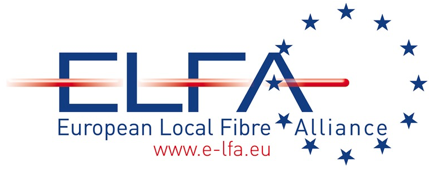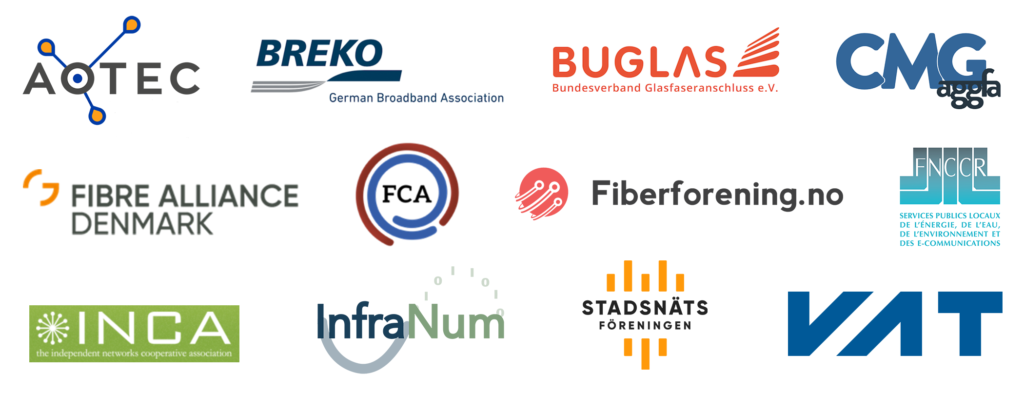
PRESS RELEASE
800 EUROPEAN FIBRE OPERATORS CALL FOR BETTER REGULATION FOR FAIR COMPETITION
The European Local Fibre Alliance (ELFA) shares the European Union’s ambition to bring fibre to all European households and businesses by 2030. Only fibre connectivity provides true gigabit speeds with the lowest possible latency and energy consumption, laying the foundation for a digital and sustainable Europe. ELFA supports the EU’s recent policy initiatives as they provide better incentives for faster roll-out of fibre including reducing the risk of anti-competitive overbuild. ELFA also welcomes the European Commission’s white paper for a Digital Networks Act as it would call for implementing copper switch-off in the foreseeable future in a fair manner which avoids distortions of competition. However, it is calling for definite actions to deliver this, as Europe’s future depends on fibre networks.
Berlin, 20 March 2024
ELFA, the joint voice of European local and regional fibre operators, fully supports the European Union’s ambition to bring fibre connectivity to all European citizens and businesses by 2030. ELFA represents more than 800 member companies building fibre networks in both urban and rural areas, already reaching over 50% of all European premises.
ELFA acknowledges the efforts of the European Commission, Parliament, and Council in achieving a political agreement on the Gigabit Infrastructure Act (GIA) before the end of the mandate, including a safeguard against anti-competitive overbuild and taking into account a large degree of national flexibility for Member States to allow for exemptions from the various obligations throughout the GIA. The national flexibility will hopefully protect already efficient and streamlined procedures for permit granting and coordination of civil works in Member States.
ELFA welcomes the Commission’s White Paper “Building Europe’s digital infrastructure of tomorrow” as a basis for an open discussion on the scope and content of a potential future Digital Networks Act. Like the Commission, ELFA believes that setting a policy goal for the ubiquitous availability of fibre by 2030 can further encourage the network operators represented by our members in their significant efforts to ensure that all parts of Europe have access to the most advanced communications and computing infrastructure to stay innovative and competitive with other leading regions in due course.
However, ELFA remains sceptical about certain scenarios considered by the Commission, such as the call for European Champions, which would potentially discriminate against the large number of small and medium operators that currently represent over 50% of FTTH/B availability across Europe or promoting deregulation as an immediate goal.
ELFA notes that the Commission has also set 2030 as a policy goal for the completion of copper switch off. We believe that the maintenance of copper and cable-based networks strongly contribute to delaying the roll-out and take-up of fibre networks in Europe. However, ELFA believes it is crucial that European Regulators set a clear framework which ensures that copper networks are phased out exclusively on terms which are fair and avoid distortions of competition by former state enterprises.
Moreover, we fully support initiatives by the Commission to facilitate the greening of digital networks by replacing copper and cable-based networks with more energy efficient fibre networks. Fibre networks (FTTH) consume up to 66%[1] less power than copper or cable-based networks, making them more energy efficient and environmentally friendly. ELFA therefore welcomes the Commission’s work on common EU indicators for measuring the environmental footprint of electronic communication services and to develop, by 2025, an EU Code of Conduct for the sustainability of electronic communications networks to help steer investments towards all-fibre infrastructures.
We look forward taking part in the upcoming discussions on how Europe can achieve its 2030 digital target of ubiquitous fibre coverage.
[1] BREKO Sustainability Study


